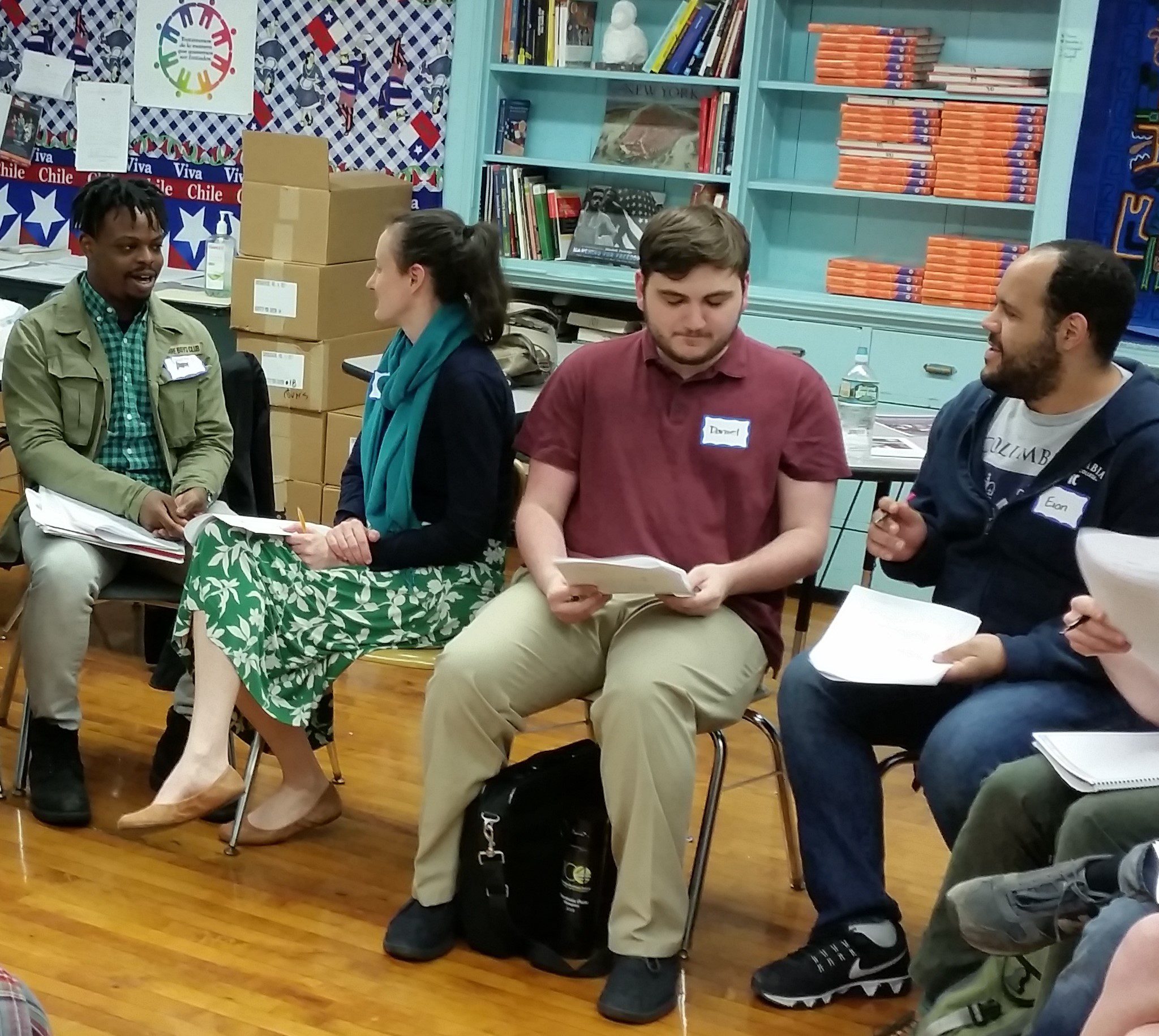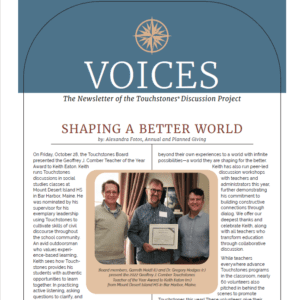by Sharon Thomas
For educators, the term “professional development” (PD) is a type of loaded language. Schools everywhere seek to provide teachers, leaders, and staff members with high-quality PD that can help them to improve their practices and better serve students. I’ve worked with thousands of educators, and they all cared deeply about doing a good job and serving students well. So why, then, is eye-rolling commonplace when the term “PD” comes up in faculty and staff room conversations? It’s complicated, and Touchstones is here to help.
Having worked in the professional development field for a long time, I think semantics may be a key villain in why people sometimes respond negatively to PD. Over time, three terms in professional learning have become conflated with each other, even though each has its own role and its own research determining its best practice.
- Training: Training involves exposing employees to a new concept or process, explaining to them how it works, and giving them initial practice with it. Employees do not master a process after receiving training on it—they have a working knowledge of it and can get started in using it, but mastery comes over time with practice and coaching. Training needs are typically determined by leaders and involve required job functions and programs, and most training happens with new employees. New employees are often highly engaged in training because they want to do their new job well, and they have the openness characteristic of novices. Seasoned employees who are asked to change how they do their job and undertake training on new job requirements can be less engaged than new employees. Those experienced employees are being asked to do an additional, much harder task whenever they take on a new program—they are being asked to change their daily habits. Changing habits is one of the most difficult things a human can do, so resistance to new training is common.
- Coaching: The term “coaching” is probably one of the most misused terms in the professional workplace. Coaching does not mean gently telling an employee what to do and how to do it (that’s training, or maybe just a directive). Rather, coaching involves the employee setting a goal for their own growth in a specific area of their job and the coach providing them with as much support and as many resources to make that change as the employee wants. Coaching occurs when an employee wants to improve a process in which they have already been trained; it is not a substitute for training. This is a huge issue in schools these days when large number of new teachers in buildings causes leaders to deploy instructional coaches to “coach” new teachers on programs for which the new teachers have not yet been trained. This often leads coaches to feel pressured to give teachers short, fast explanations of processes and then expect speedy mastery of them. Spoiler alert: substituting training for coaching doesn’t work, and neither does forced coaching.
- Professional development: This term originally referred to employees choosing new programs and processes for themselves to grow as a professional (e.g., enrolling in a graduate course or program, signing up for a workshop on an area of interest, etc.). As with coaching, some degree of choice and autonomy are involved with PD, but PD is not the same as training or coaching. But somewhere over the past 30-ish years, “professional development” became the blanket term for all three: training, coaching, and PD.
Because the terms are all perceived as the same thing, the resistance that comes with changing habits, forced coaching, and forced workshops results in the term PD earning some negative connotations. When one adds in factors in PD sessions such as starting late, running long, and/or not including snacks or enough breaks, eye-rolling immediately ensues.
At Touchstones, we have seen the significant difference that training, coaching, and PD make when implementing our programs. Educators often have misconceptions about Touchstones. They may think, “Touchstones is a set of books,” or “Touchstones is mainly about texts,” or “Touchstones is a Great Books program,” or “Touchstones is the same thing as Socratic seminar.” These misconceptions lead to misunderstanding the role of the teacher and students in Touchstones and lead to unintended low-quality implementation of the program. This can result in sub-optimal engagement for students and yield problems that would be prevented with proper training and coaching.
To assist schools and school leaders in supporting teachers and best practices, and to emphasize the key role that training and coaching play in leading collaborative discussions, we are now offering packages that indicate how much training and coaching is most helpful in different implementation situations. On our website, we differentiate support depending on whether Touchstones is being implemented by a single teacher (the One Teacher package), by multiple teachers in a school (the One Schoolpackage), or by multiple schools in a district (the One District package). Support needs differ from context to context, so we offer these packages as a guideline—one that is flexible and modifiable based on each educator’s needs.
Additionally, these packages discount the cost of purchasing Touchstones volumes and various forms of support for leaders and their faculty to ensure the best resources are part of every implementation. To celebrate the end of the year, Touchstones is offering an additional 15% discount on any class set of volumes or any Training and PD package now through January 31, 2024, for services delivered by June 30, 2024. Contact me at sharon@touchstones.org to set up the best options for your needs.
Sometimes I help to perpetuate the problem of using “PD” as a catch-all term for training, coaching, and PD. At this point, from a semantics point of view, it’s “PD”’s world, and we’re just living in it. We can’t turn back the clock on the terminology issue, but we can work to move the needle for students by providing teachers, leaders, and organizations clear information on high-quality, consistent, and affordable implementation support that leads to the best outcomes for students. Please reach out to me any time to discuss the needs in your context and how we can support you. I’ll bring the snacks.




 Join the
Join the